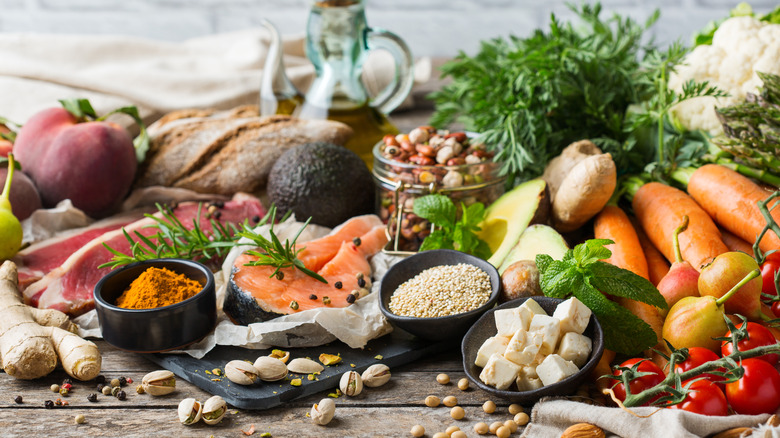Can Anti-Inflammatory Diets Boost Fertility?
According to Brigham and Women's Hospital, approximately 15% of couples struggle with infertility. And, while treatments for infertility are available, there are also things that couples can do at home that could help their chances of getting pregnant. These include maintaining a healthy weight, eating healthy fats, and adding whole grains to the diet. A 2018 study published in Frontiers in Public Health revealed that diets that include unsaturated fats, whole grains, vegetables, and fish have been associated with increased fertility.
Research has suggested that inflammation, your body's response to injury, illness, or stress, may play a role in infertility (via IVF1). Inflammation can lead to such reproductive problems as pelvic inflammatory disease, polycystic ovary syndrome, and endometriosis. In addition, inflammation of the uterine lining could increase a person's risk for a miscarriage. According to the Oldershaw Clinic, inflammation is managed in the body by a hormone known as cortisol. However, cortisol can also cause hormonal imbalance, inhibit egg maturation, and create difficulty with the implantation of eggs in the uterus. Luckily, recent research has indicated that dietary changes may have a positive result in terms of improving fertility chances.
What you eat can make a big difference
In a 2022 study published in Nutrients, researchers found that the Mediterranean diet, which is rich in anti-inflammatory foods, may help improve the chances of fertility in both women and men. A 2013 study conducted at Loyola University yielded similar results, showing that 30% of infertility cases stemmed from being overweight or underweight, causing shifts in hormones and affecting ovulation. The study showed that lowering weight by even 5% can increase fertility. And the diet is not just for women. A 2017 study published in Human Reproduction showed that men on the Mediterranean diet showed an increased sperm count and greater motility (how efficiently the sperm move).
In addition to a healthy diet, those who are looking to conceive should make other positive lifestyle changes (via Reproductive Medicine and Infertility Associates). These include reducing stress, quitting smoking, and developing a healthier, more physically active lifestyle. In addition, if you are having trouble getting pregnant, you should talk with your doctor to determine the best diet and lifestyle changes you can make to hopefully increase your chances.


